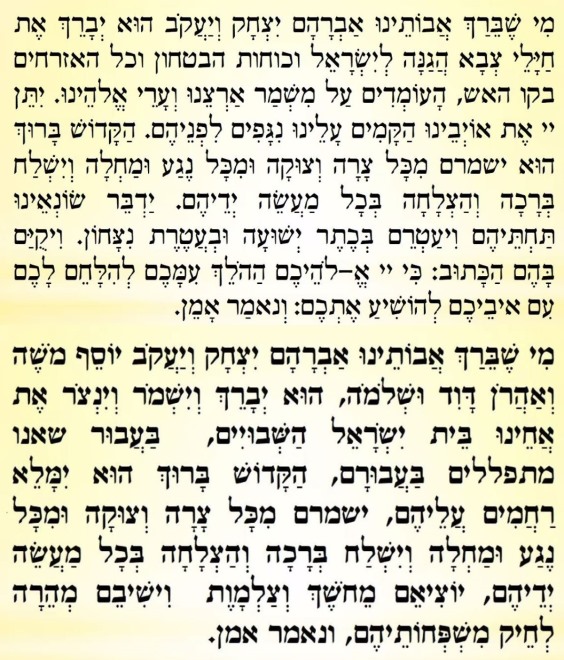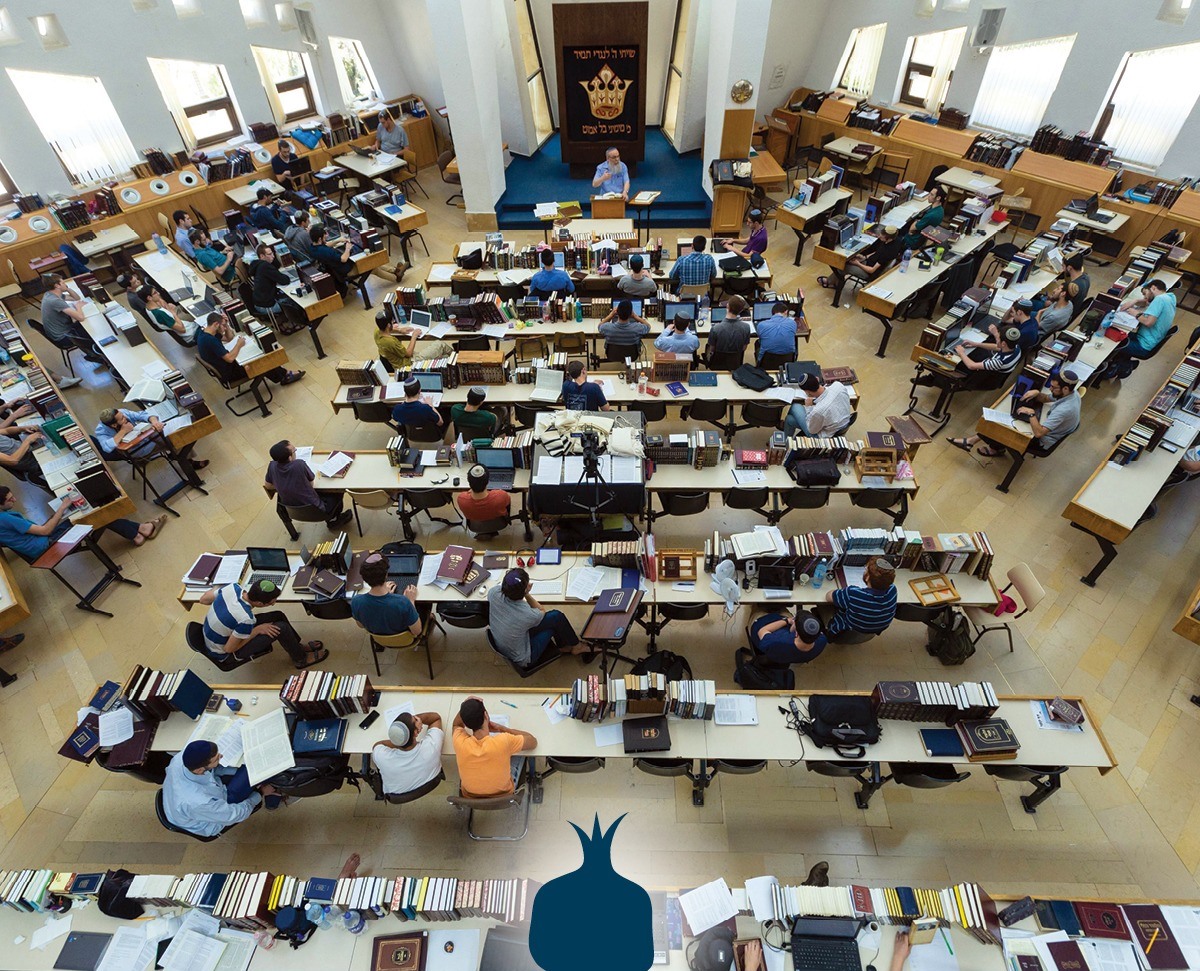And it came to pass in the days of Amrafel, king of Shin'ar; Aryokh, king of Elasar; Kedarla'omer, king of Eilam, and Tid'al, king of Goyim – [that they] made war with: Bera', king of Sedom, and Birsha, king of 'Amora; Shinav, king of Adama, and Shemeiver, king of Tzevoyim; and the king of Bela' – which is Tzo'ar. All these joined forces in the Valley of Siddim – which is the Salt Sea [Dead Sea]. (Bereishit 14:1-3)
The Torah devotes a considerable portion of this week's parasha to describing the war between the five kings and the four kings, but the reason for this focus and attention is not clear. Does Avram's victory over the five kings justify such extensive elaboration? In general, the Torah does not devote much space to descriptions of a person's positive actions, unless a positive action is part of another story that is being told. Even the account of the angels' visit to Avram, which teaches us about his hospitality, is included only in the context of God's promise to Avram concerning progeny, and of the story of the destruction of Sedom (Bereishit chapter 18). Similarly, we would have no inkling of Moshe's identification with the suffering of Bnei Yisrael, as expressed in his killing of the Egyptian taskmaster, were it not necessary to explain his flight to Midyan (Shemot chapter 2). So how are we to understand the fact that the Torah seems to devote an entire chapter to a description of Avram's trait of kindness?
Our question intensifies in light of the textual unit that follows it – the account of brit bein ha-betarim (the Covenant Between the Parts). This account opens with the words, "After these things…" (15:1), indicating that there is some connection between the two episodes – but at first glance, it is difficult to point to any connection between the war of the kings and the covenant forged between Avram and God in the next chapter. Chazal address this question, and propose the following link:
Because Avraham Avinu was afraid, saying: I descended into the fiery furnace, and was saved; I went off to [fight in] the war of the kings, and was saved. Perhaps I have already received my reward in this world, and have nothing [awaiting me] in the World to Come.
The Holy One, blessed be He, said: "Do not fear, Avram; I am your shield…" – [hinting,] all that I have done for you in this world, I did for you for free – but your reward [still] awaits you in the time to come: "…your reward is exceedingly great" (15:1). (Bereishit Rabba 44:4)
The midrash (cited by Rashi, ad loc.) explains that after Avram's victory in the war, he was concerned that he had "used up" all his merit. This concern in itself raises a question: Avram managed to save a great many people by fighting this war; surely this alone should have added to his merits! Even if saving the people of Sedom did not warrant so much merit, surely saving Lot should be counted in his favor?
"Your descendants will be strangers"
Beyond the questions raised above, it seems that the most difficult textual problem in the parasha relates to the covenant that God forges "between the parts" with Avram. From the beginning of the parasha, when Avram sets off at God's command for "the land that I will show you," God emphasizes over and over again that he and his descendants are destined to inherit the land. The Torah initially gives the impression that Avram will take possession of Eretz Yisrael immediately upon arrival. It is only when God anchors His promise in brit bein ha-betarim that we are suddenly confronted with a decree of exile – "Your descendants will be strangers in a land that is not theirs, and they will serve them, and they will afflict them for four hundred years" (Bereishit 15:13) – resulting from the fact that Avram is not yet able to inherit the land "because the sin of the Emorites is not yet complete" (v. 16). Why is no mention made of this problem earlier on? Why do we discover the decree of exile only at brit bein ha-betarim?[1]
Yet another difficulty arises from the promise, "and thereafter they will emerge with great wealth" (v. 14). Will this wealth repay Bnei Yisrael for more than two hundred years of servitude, slavery, humiliation, and murdered babies? Perhaps the Divine attribute of justice requires that there be some recompense, even just as a token, when they leave Egypt – but since material wealth cannot repay what they have lost, there seems to be no need to mention it at the occasion of the forging of the covenant with Avram.[2]
Israel's Inheritance of the Land
In the chapter preceding the war of the kings, the Torah describes the division of the land between Avram and Lot. When Lot chooses the Jordan plain, where the people of Sedom and Amora reside, the Torah notes explicitly that the people of Sedom are "wicked and exceedingly sinful to God" (Bereishit 13:13). It is reasonable to assume that this unusual expression indicates the people of Sedom have accumulated more sins than can be borne. Even if the sin of the Emorites is not yet complete during the period in question, and therefore it is not yet time for them to be removed from the land, the sin of the people of Sedom is already complete, and the land vomits them out.
This is the background to the war between the four kings and the five kings. The war was intended by God to send the people of Sedom into exile because of their transgressions, after which Avram could inherit their land. This hypothesis is supported by the way the Torah describes the city:
And Lot lifted his eyes and saw all the plain of the Jordan, that it was well watered everywhere, before God destroyed Sedom and Amora, like the garden of the Lord, like the land of Egypt as you come to Tzo'ar. (Bereishit 13:10)
The text compares Sedom to the Garden of Eden. It seems that nowhere would be a more appropriate place for the first settlement of Bnei Yisrael in Eretz Yisrael.
Were it not for Avram's intervention in God's historical plan, everything would have worked out smoothly: Kedarla'omer and his companions would have exiled the population of Sedom, including Lot, and Avram would have gone down to the plain of the Jordan and settled there. When Avram fought against Kedarla'omer, ultimately enabling the people of Sedom to return home, he obstructed his own inheritance of Sedom. Moreover, since the sin of the Emorites was not yet complete, there was nowhere in the land where he could dwell, and thus his descendants – Bnei Yisrael – were forced to go into exile until such time as the Emorites' time was up.
And when the people of Sedom returned to their city, they continued to sin – until God decreed their complete destruction, such that no one would henceforth be able to live in the overturned city:
All its land [destroyed by] brimstone and salt, and a burning; it cannot be sown, nor produce, nor does any grass grow on it – like the overthrow of Sedom and Amora, Adma and Tzevoyim, which the Lord overthrew in His anger." (Devarim 29:22)
Now we are in a better position to understand Avram's concern. He fears that just as his inheritance of the land was put off because of his war against the five kings, so it might continue to be postponed for other reasons. Thus, God has to promise Avram that his descendants will indeed inherit the land.
In view of the above, we might also explain why God makes repeated mention of the great wealth that will come into the possession of Bnei Yisrael when they leave Egypt. Our parasha relates Avram's refusal to take any reward – "from a thread to a shoelace" (Bereishit 14:23) – from the people of Sedom for their deliverance. The Torah repeatedly emphasizes God's faithful justice: Avram refuses to accept payment from the people of Sedom for saving them, but God orchestrates events in such a way that he will be rewarded for his refusal. At the moment when it is decreed that Avram's descendants will be in exile for four hundred years, there is a need to emphasize that God is a true Judge.
"To perform righteousness and justice"
Following the revelation of the impact of Avram's actions on the history of Am Yisrael, we are left with a fundamental question: Why does Avram exert himself to save the people of Sedom, if this deliverance causes him to be punished? Was Avram not aware that as a result of his noble act, his descendants would be doomed to exile and servitude for four hundred years?
The Torah offers no answer to this question, though we might try to arrive at a partial answer based on the explanation for why God notifies Avraham of the impending annihilation of Sedom:
For I know him, that he will command his children and his household after him, and they will keep the way of the Lord, to perform righteousness and justice, in order that the Lord may bring upon Avraham that which He had spoken of him." (Bereishit 18:19)
The choice facing Avram in our parasha is an unbearably difficult one. He must choose between the act that he believes to be moral – saving his nephew from the hands of Kedarla'omer – and the realization of God's promise, with the knowledge that in saving Lot, he imposes a decree of a lengthy and torturous exile on his own descendants. Moreover, had Avram not saved the people of Sedom, they would not have continued to sin; his deliverance of Sedom in chapter 14 is an indirect cause of its later destruction and the annihilation of all its inhabitants.[3] In the end, as Avram sees it, the edifice of Am Yisrael cannot be built on the foundation of a choice that is immoral – even when that choice would favor Avram's descendants or the inhabitants of Sedom.
In fact, the message arising from this episode is even more complex. It is impossible to define the two possibilities facing Avram as a "good" choice and a "bad" choice. He is not called upon to choose between "good" and "evil" in the usual sense of these terms. There are two parallel paths along which Am Yisrael might develop, and Avram is required to choose between them. Even if he chooses the more moral choice, his choice will have negative consequences.
This episode represents the archetype of a complex choice, where there is no "right" and "wrong." This is the sort of choice that we are most often faced with: a choice between two mixtures of good and bad. In most cases, even choosing "good" will not be a bed of roses; only once in history did an angel appear at the critical moment and prevent Avraham from slaughtering his son. After Avram chooses to save the people of Sedom, no angel appears to inform him that the people of Sedom will disappear in some miraculous fashion, so that his descendants can inherit their land. It is the way of the world that when we choose the better option – just as when we choose the worse one – we have to live with the consequences, both positive and negative.
Another message arising from the parasha pertains to Avram's personality: as the paradigm of kindness, he does not choose the path that is preferable for the people of Sedom, himself, and his descendants. Although it entails delaying the fulfillment of God's promise, he is not deterred from making what he regards as the right choice. Thus, he rightfully earns the praise with which God speaks of him:
For I know him, that he will command his children and his household after him, and they will keep the way of the Lord, to perform righteousness and justice.
(Translated by Kaeren Fish; edited by Sarah Rudolph)
[1] Chazal note this difficulty and propose various resolutions.
[2] When God appears to Moshe for the first time at the burning bush, too, He promises him, "And it shall be that when you go, you will not go empty(handed)" (Shemot 3:21). This indicates once again that the acquisition of Egyptian wealth is important in its own right, but there is no explanation of why this is so.
[3] Perhaps this is the reason Avram argues with God about saving the people of Sedom, making a special effort on their behalf. It seems that he feels indirectly responsible for their fate – since had he not saved them, they would have been exiled, but would have remained alive.






No comments:
Post a Comment